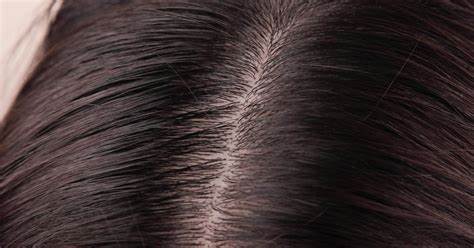How well do you know your scalp? This question may seem trivial to some, yet it's profoundly significant. Our scalp, often hidden beneath layers of hair, does more than just serve as the bedrock for our hair strands. It's a mirror reflecting our internal health, telling stories of what's happening inside our bodies. It's fascinating to learn how much our scalp can communicate, if only we stop to listen and understand its language.
The Scalp: More Than Just Skin
The scalp is not merely an extension of our skin; it is a dynamic ecosystem. In the hands of a trained professional, it becomes a revealing indicator of underlying health conditions. As a licensed Trichologist, I've honed my skills to interpret these silent signals. Through examinations and the use of a microscope, I can identify specific scalp patterns and anomalies that may escape the untrained eye.
Scalp disruptions are rarely without cause. They often signal internal imbalances or reactions to external factors. This realization is crucial because identifying the root cause is the first step toward effective treatment.
A Two-Pronged Approach to Scalp Health
Addressing scalp issues usually requires a collaborative effort. A Dermatologist can offer a precise medical diagnosis, pinpointing any specific conditions affecting the scalp. Meanwhile, a Trichologist focuses on a tailored treatment strategy that addresses both the symptoms and the underlying causes. This dual approach ensures comprehensive care, targeting the issue from all angles for optimal results.
However, access to professional care might not be immediate for everyone. If you find yourself in such a situation, there is still hope. Resources like my e-book, 'You Can Heal Your Scalp,' provide valuable guidance for managing scalp health on your own. It's designed to empower you with the knowledge and tools needed to embark on a DIY journey towards a healthier scalp.
Listening to What Your Scalp Is Telling You
The key to a healthy scalp lies in understanding its signals. Here are a few common signs and what they might mean:
- Dryness and Flakiness: Often a sign of dehydration or a reaction to harsh hair products. It's a call to reevaluate your hair care regimen and incorporate more moisturizing products.
- Excessive Oiliness: Could indicate an imbalance in your scalp's sebum production, often triggered by diet, hormonal changes, or overwashing.
- Itchiness and Redness: These are common indicators of irritation or allergic reactions. They can also signal conditions like dermatitis or psoriasis.
By paying attention to these signals, you can take proactive steps towards addressing scalp issues before they escalate.
Empowering Your Scalp Care Journey
Understanding your scalp is the first step towards nurturing its health. Whether through professional consultation or armed with knowledge from trusted resources, taking action is pivotal. Remember, your scalp's condition is a reflection of your overall health and well-being. By caring for it, you're not just ensuring the growth of healthy hair but also supporting your body's health.
The journey to a healthy scalp is a personal one, filled with discoveries and insights. As you learn to decipher its silent signals, you'll find yourself not only improving the health of your scalp but also gaining a deeper understanding of your body's needs. Let's embark on this journey together, listening and responding to what our scalps have to say.


